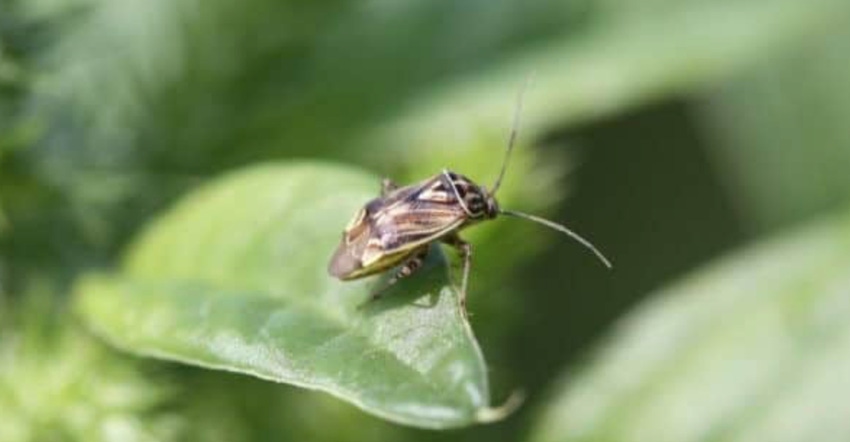
Syngenta Crop Protection’s new insecticide, Plinazolin Technology, is still years away from a commercial U.S. launch, but university researchers who have evaluated the insecticide over the past four years already have a special nickname for it … “Vacation.”
“We call it the vacation spray because of its extended residual,” said Sebe Brown, University of Tennessee Extension entomologist. “Theoretically, a grower could apply this technology, take a week off for summer vacation, and not be behind on insecticide sprays upon his return.”
Brown delivered his remarks during the 2022 Cotton Focus meeting, hosted by the UT Institute of Agriculture.
Syngenta announced Plinazolin in November as a new active ingredient with a “novel mode of action for insect control that will help growers protect their crops from a wide range of pests,” including plant bugs, stink bugs and spider mites. Syngenta said the sunlight stability and rain-resistant properties of Plinazolin technology allow for longer spray intervals and fewer applications.
It contains the active ingredient isocycloseram, a member of the Insecticide Resistance Action Committee’s Group 30. This group of insecticides is known as GABA receptor antagonists. Gamma-aminobutyric acid — GABA — is a neurotransmitter, or chemical messenger, in the brain.
Brown said Midsouth growers need new chemistries for managing insect pests to head off resistance issues in existing products.
“It is going to be a game changer in the row crop insecticide game,” Brown said. “It gives us a desperately needed boost in what has become a very shallow toolbox. We need things we can rotate with — especially in cotton.”

“Rotating chemistries will always be beneficial to growers,” he added.
Brown had evaluated Plinazolin technology over the past four years in his former role as Field Crop and Extension Entomologist for LSU AgCenter. He joined the UT Institute of Agriculture in December. UTIA evaluations have also shown that Plinazolin exhibits extended residual activity on insect pests significant to cotton and soybean growers.
Syngenta plans to commercialize Plinazolin in more than 40 countries and on more than 40 crops, including soybeans, corn, rice, coffee, cotton, and a wide range of fruits and vegetables.
The active ingredient will be first marketed to soybean growers in Argentina under the brand Virantra.
The U.S. Environmental Protection Agency has the product slated for review in early 2023 in its multi-year work plan for conventional pesticide registrations – new chemical registration candidates.
About the Author(s)
You May Also Like






